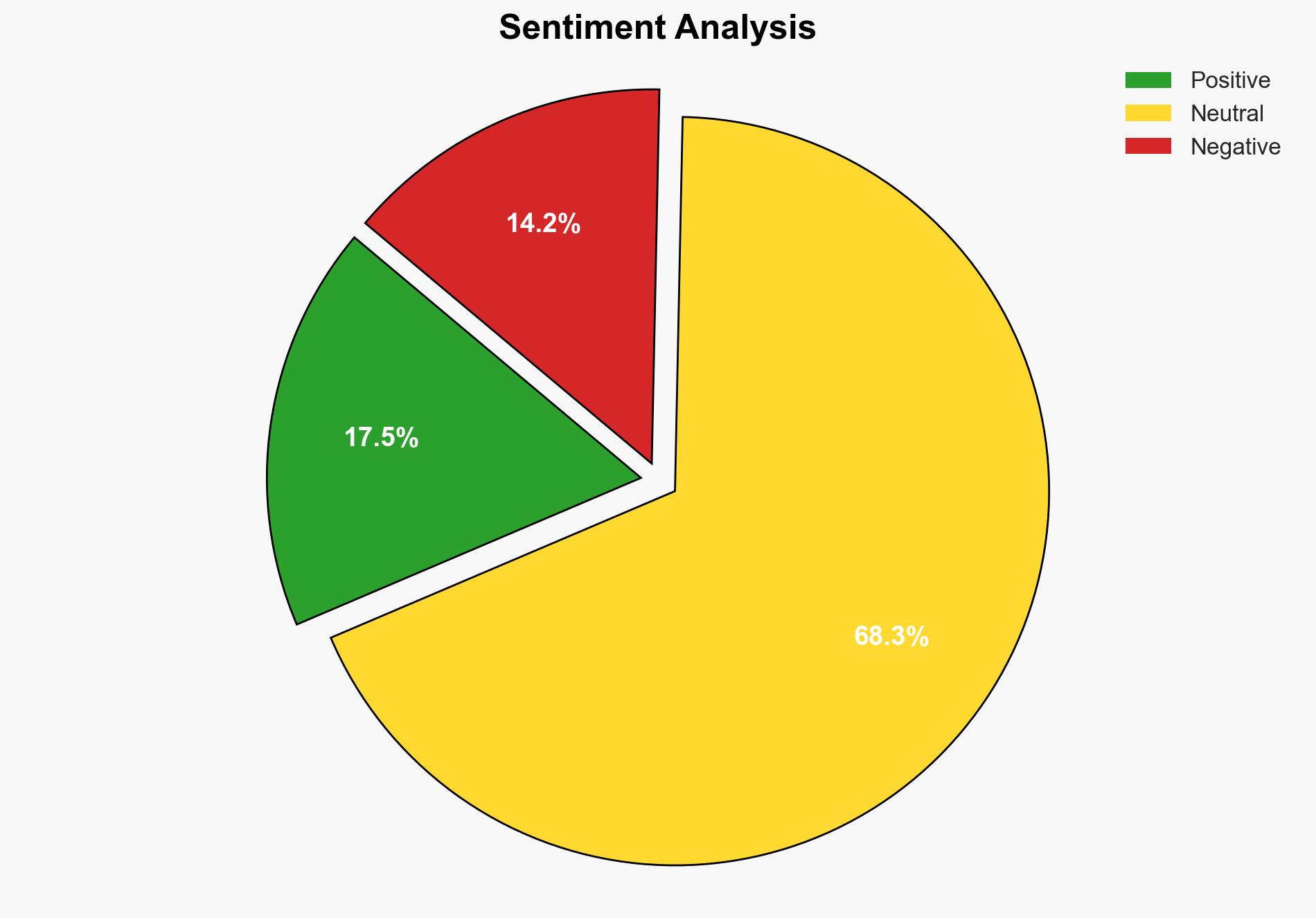Iraq asserts commitment to security agreement with Iran – Globalsecurity.org
Published on: 2025-03-01
Intelligence Report: Iraq asserts commitment to security agreement with Iran – Globalsecurity.org
1. BLUF (Bottom Line Up Front)
Iraq has reaffirmed its commitment to a security agreement with Iran, aiming to neutralize threats from foreign-backed anti-Iran groups operating in the Iraqi Kurdistan region. This development is significant amid ongoing regional tensions and calls for the withdrawal of foreign troops from Iraq. The strategic focus is on ensuring regional stability and addressing security threats while balancing international relations.
2. Detailed Analysis
The following structured analytic techniques have been applied for this analysis:
SWOT Analysis
Strengths: Iraq’s commitment to the security agreement with Iran strengthens bilateral relations and regional security cooperation.
Weaknesses: Persistent foreign military presence and internal resistance groups challenge Iraq’s sovereignty and stability.
Opportunities: Potential for enhanced regional security collaboration and economic partnerships.
Threats: Ongoing threats from terrorist groups and external pressures, including economic sanctions and military conflicts.
Cross-Impact Matrix
The security agreement between Iraq and Iran may influence regional dynamics by reducing the operational capacity of anti-Iran groups in Iraqi Kurdistan. This could lead to decreased tensions between Iran and neighboring countries, potentially impacting U.S. military strategy and presence in the region.
Scenario Generation
Best-Case Scenario: Successful implementation of the security agreement leads to reduced terrorist activities and improved regional stability.
Worst-Case Scenario: Escalation of conflicts due to non-compliance or external interference, leading to increased regional instability.
Most Likely Scenario: Gradual progress in implementing the agreement with ongoing challenges from external pressures and internal resistance.
3. Implications and Strategic Risks
The strategic risks involve potential escalation of conflicts if the security agreement is not effectively implemented. There is a risk of increased tensions with foreign powers due to the presence of foreign troops and economic sanctions. Regional stability is contingent upon successful collaboration between Iraq and Iran, as well as the withdrawal of foreign military forces.
4. Recommendations and Outlook
Recommendations:
- Enhance diplomatic efforts to ensure compliance with the security agreement and address regional security concerns.
- Develop a clear timeline and strategy for the withdrawal of foreign troops to strengthen Iraq’s sovereignty.
- Seek international support to mitigate economic pressures and sanctions impacting Iraq’s energy imports.
Outlook:
Best-Case: Strengthened Iraq-Iran relations lead to improved regional security and economic stability.
Worst-Case: Increased regional tensions and conflicts due to external interference and non-compliance with the agreement.
Most Likely: Continued diplomatic efforts result in gradual improvements in regional security, with ongoing challenges from external pressures.
5. Key Individuals and Entities
The report mentions significant individuals such as Fuad Hussein and Masoud Pezeshkian. These individuals are central to the discussions and implementation of the security agreement between Iraq and Iran.





